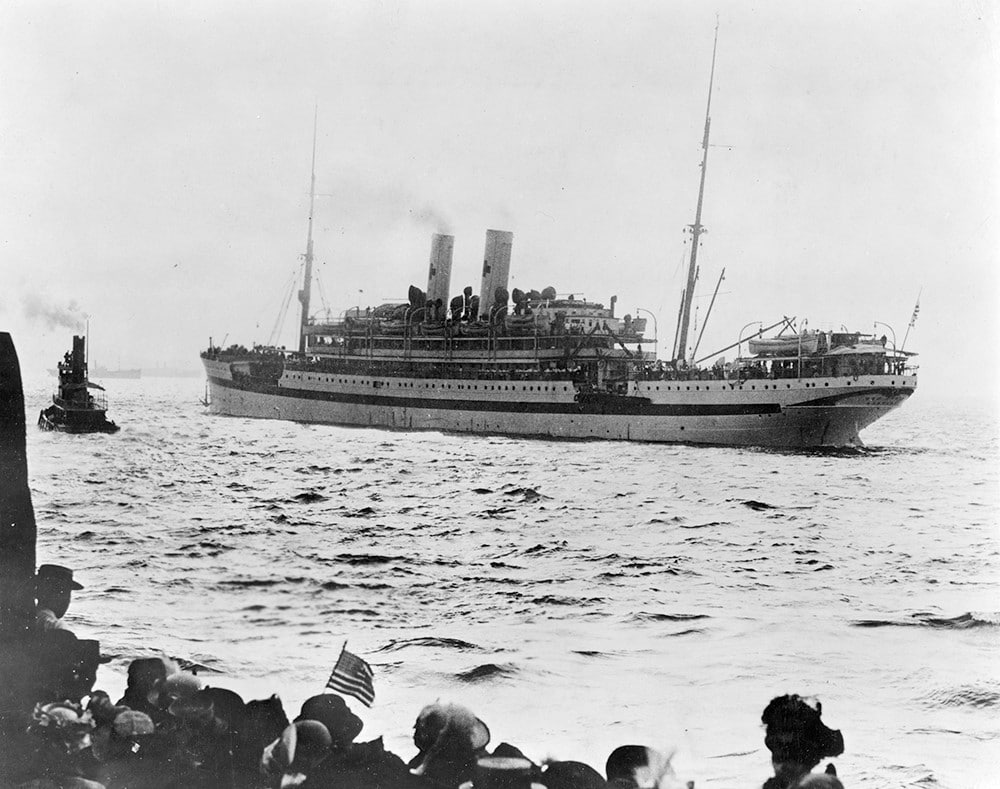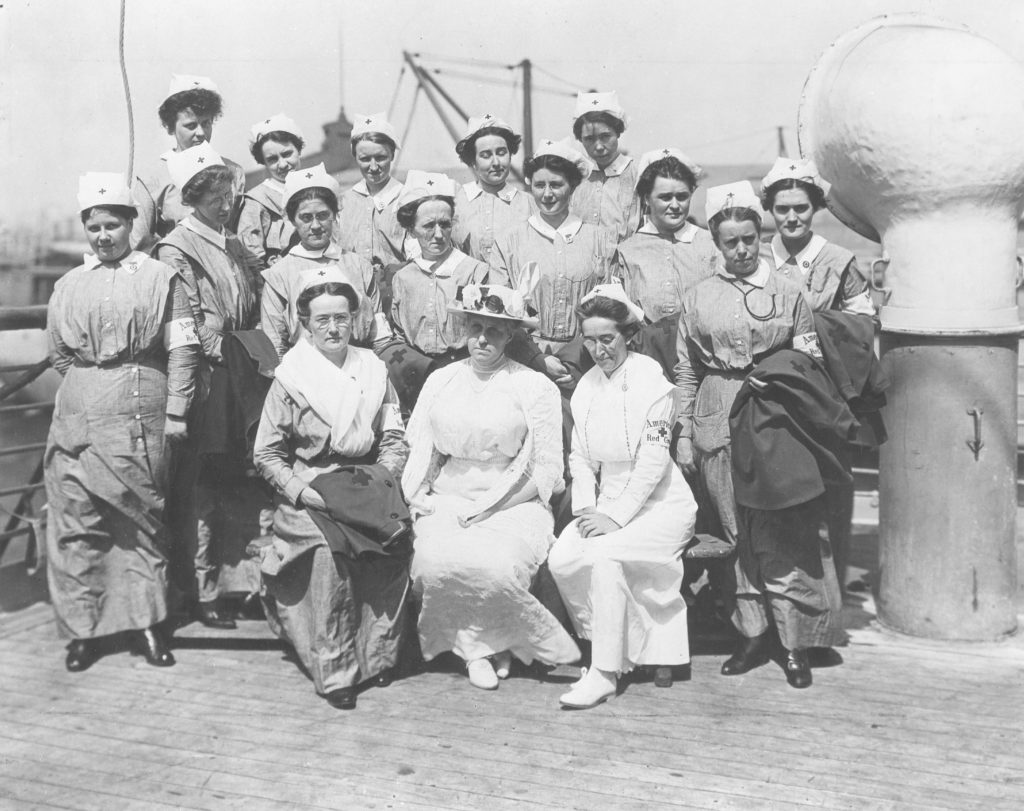A True Demonstration of Impartial Humanitarianism
At the outbreak of the Great War, the American Red Cross announced a special appeal to fund a hospital relief ship bound for Europe. The mission would embody the principles of neutrality and impartiality by providing medical aid to combat casualties on both sides of the war.
Thanks to an amazing show of public support, the ship launched on Sept. 12, 1914, exactly one month and nine days after the appeal was announced. The SS Red Cross, better known as the “Mercy Ship,” was originally the German passenger steamer Hamburg of the Hamburg-American line which offered the ship free of charge to the Red Cross.

Life Onboard Ship
In addition to medical equipment and supplies, 170 surgeons and nurses were onboard the ship.
A call for nurses went out to Red Cross chapters who, thanks to the efforts of Jane Delano, Head of the Red Cross Nursing Service, already had a pool of registered nurses. There were exacting requirements. The nurses had to be natural-born U.S. citizens, complete a physical examination, be vaccinated against smallpox and typhoid, and agree to a six-month commitment.

with nurses bound for Europe on the “Mercy Ship, 1914.” Credit: American Red Cross
During the crossing the nurses filled their days attending lectures given by the surgeons on topics such as infectious diseases, anatomy and field surgery. They had physical exercises, practiced nursing techniques and studied French and German. As seen below, many of the nurses kept a diary of their experiences.
Hospital Renovations
Overseas the medical personnel worked in teams of three surgeons and 12 nurses each. One or more teams offered emergency aid to each of the countries involved in the war. With later personnel additions, 16 teams were providing neutral relief to the nations at war. In all, 350 surgeons and nurses participated.
The medical teams had to be innovative in adapting various sites for their hospital work. In Devon, England, one team worked at Oldway Mansion, a country estate. Pau, France, another team adapted the Palais d’Hiver casino.
Not all locations were retrofits. Germany and Austria had efficient hospitals for the Red Cross workers. In Serbia, however, conditions were more primitive and the medical teams there were the closest to and involved in actual battle.
While some of the doctors and nurses returned home at the completion of their six-month period, most teams stayed in place.
In October 1915, funding constraints and a blockade of Germany which would not allow medical supplies to pass through, forced the Red Cross to end the relief effort. Teams were withdrawn from Europe, but many of the doctors and nurses who were part of the original Mercy Ship stayed on. They volunteered by assisting and cooperating with other organizations offering war relief.
To find out more about the Red Cross and our history during World War I, please visit our website.

